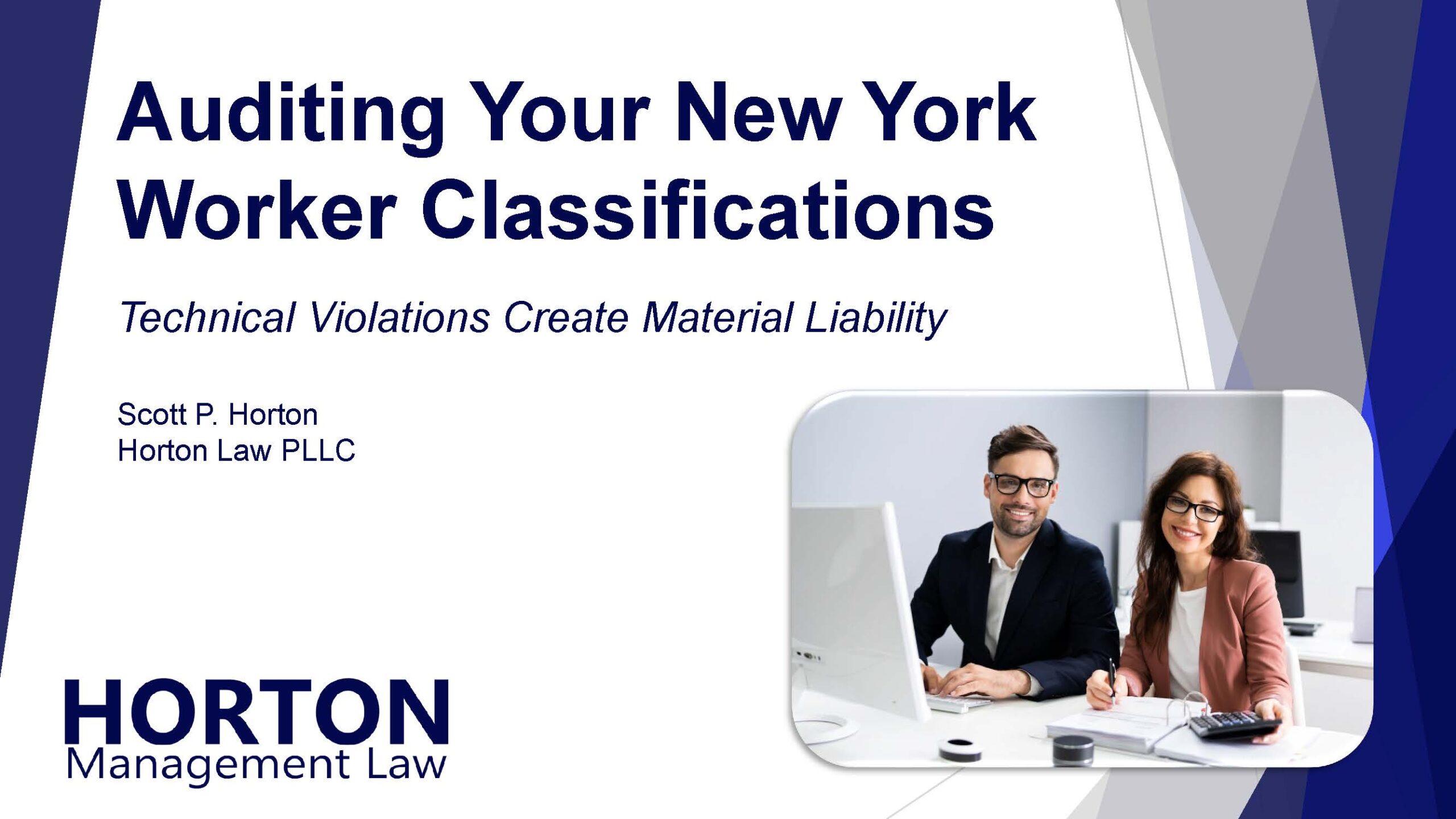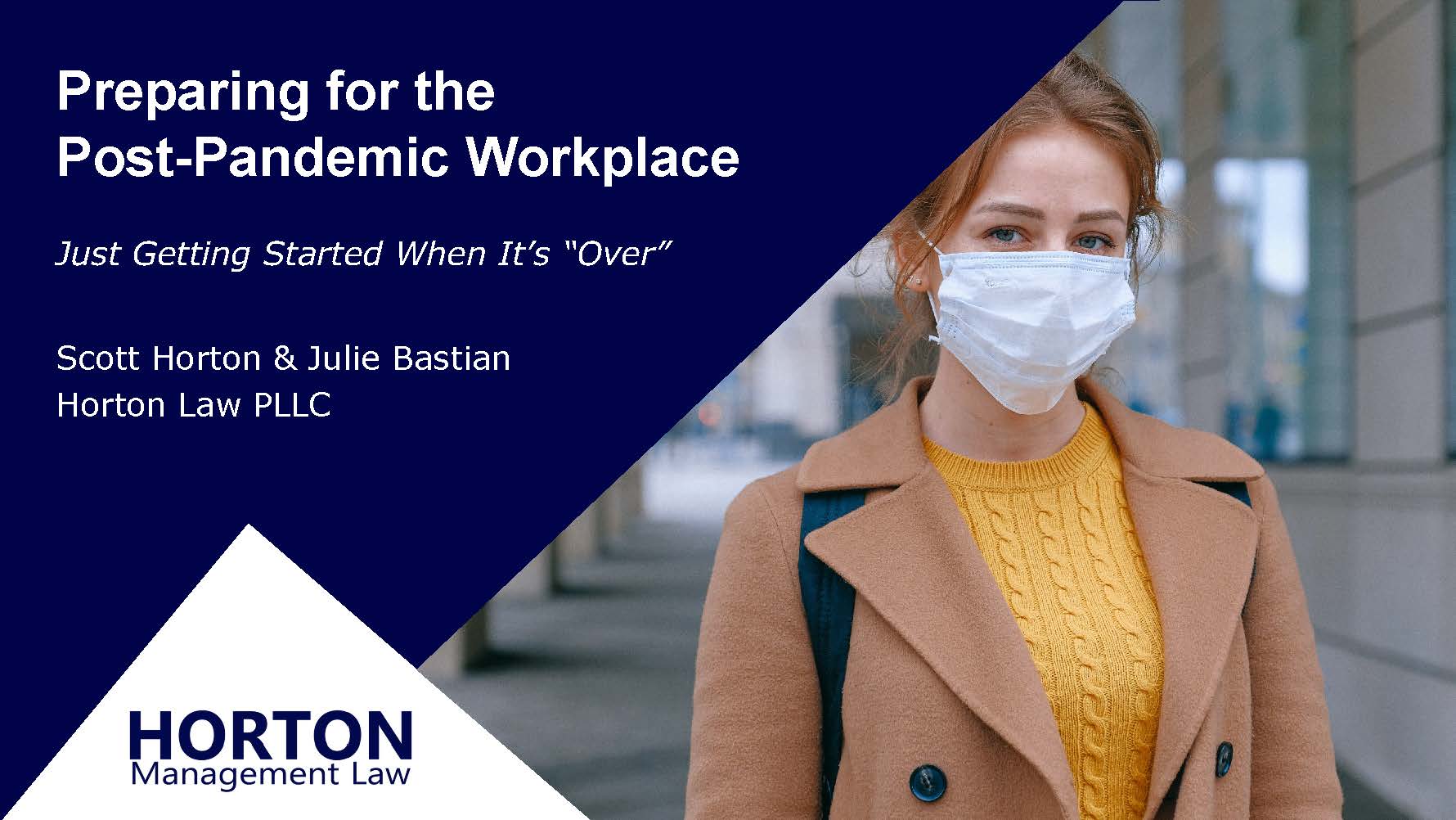On November 29, 2022, I presented a complimentary webinar entitled “Auditing Your New York Worker Classifications”. For those who couldn’t attend the live webinar, I’m happy to make it available for you to watch at your convenience.
In the webinar, I discuss:
- Employees vs. Independent Contractors
- Students & Interns
- Minimum Wage/Overtime Exemptions
- Pay Frequency
- Notice Requirements
and much more!
A complex interplay between state and federal laws makes worker classification a particularly troublesome area for New York employers. With sometimes inconsistent technical requirements, well-intended employers can make mistakes that can lead to significant financial liability. This webinar offers an overview of the key employee status distinctions for purposes such as what compensation, if any, is required and when it must be paid.
Why You Should Watch “Auditing Your New York Worker Classifications”
If your organization misclassifies employees as independent contractors or as exempt instead of non-exempt, then it could result in a wage claim that produces monetary liability well beyond what the worker should have been entitled to.
This webinar is designed to help you prevent costly litigation by classifying employees correctly before issues arise. We address both federal and New York state laws with a focus on practically evaluating worker status in compliance with an array of legal standards.
For some, this ideally would be an in-depth reminder of day-to-day operational matters that have become seemingly routine. For others, it will point out new considerations in the way your company hires or compensates workers. Either way, you don’t want to miss this convenient opportunity to get your workplace on the right track.
Don’t Miss Our Future Webinars!
Click here to sign up for the Horton Law email newsletter to be among the first to know when registration is open for upcoming programs! And follow us on LinkedIn for even more frequent updates on important employment law issues.


